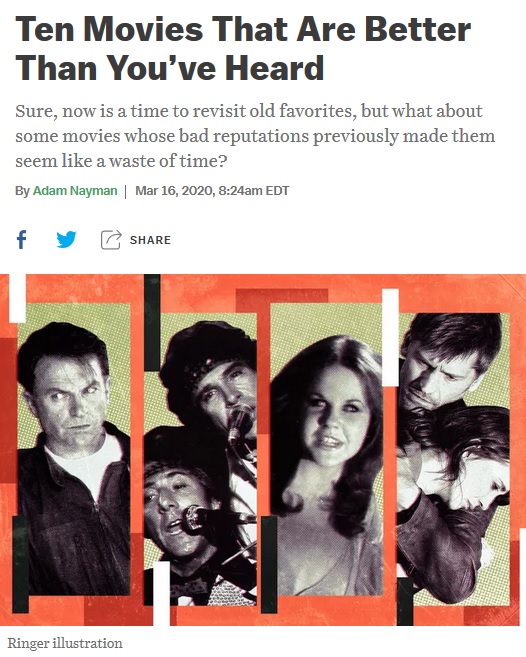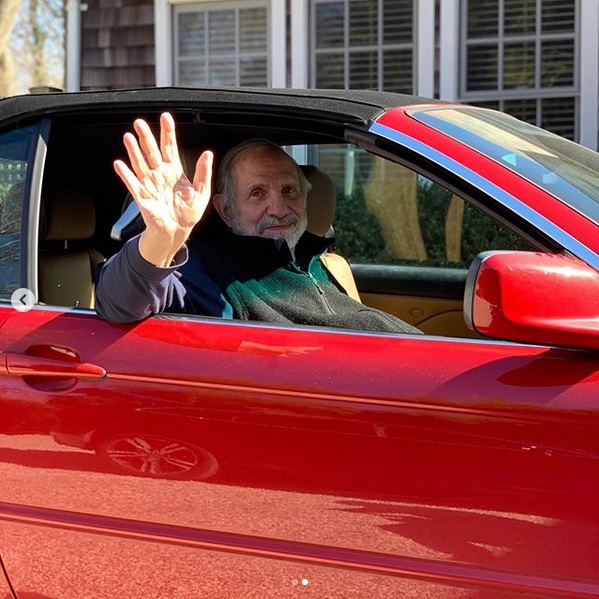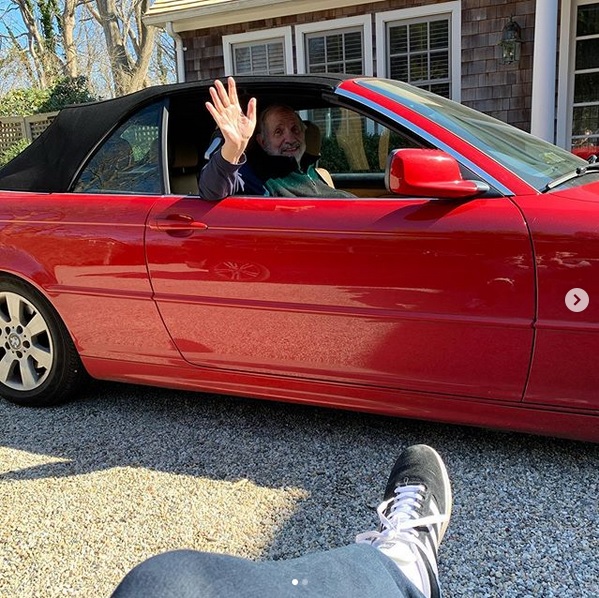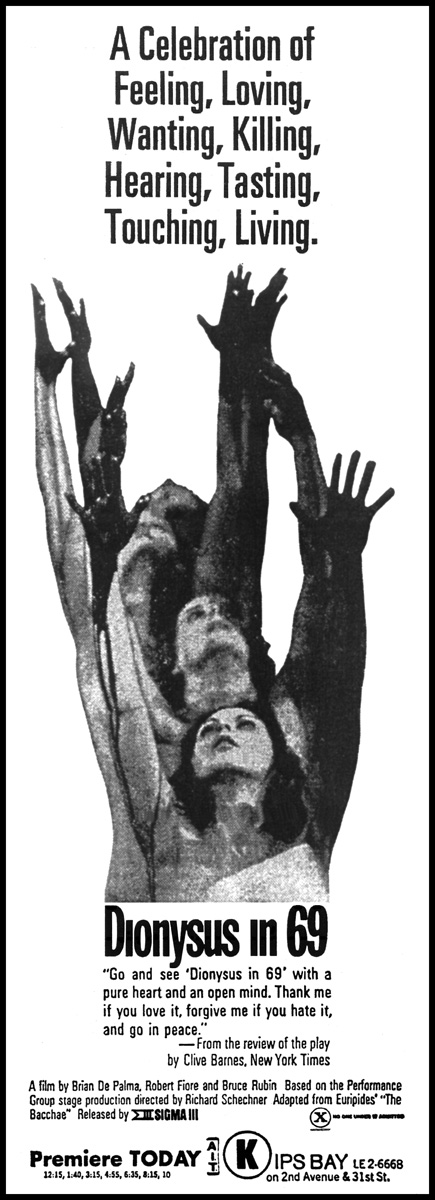BITS FROM EDITORS AT VHS REVIVAL, VOGUE PARIS, THE INDIEPENDENT, & ARCHITECT'S NEWSPAPER
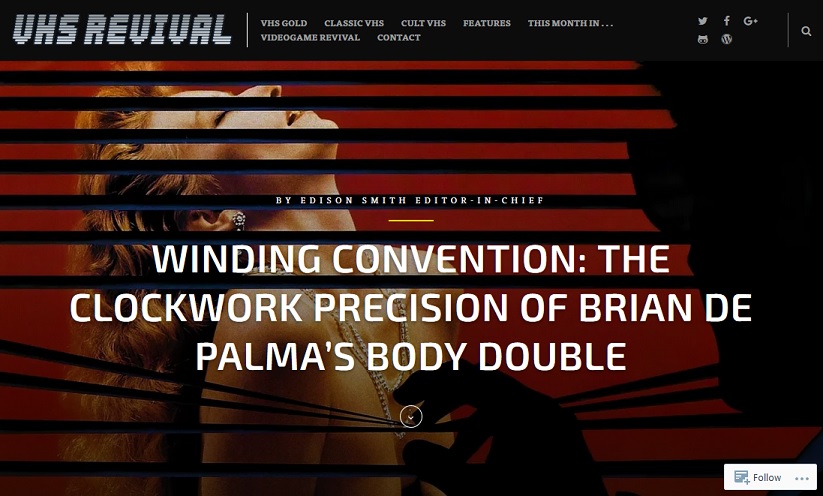
Early this month, Edison Smith, editor-in-chief at VHS Revival, posted an article about Brian De Palma's Body Double:
Brian De Palma is a filmmaker who has always attracted controversy. Not only does he attract it, he seems to openly encourage it, and that was certainly the case with Body Double, a lewd and violent thriller which set out to offend with the wry impudence of someone who is sick and tired of having the same old accusations levelled at them. Described by Paul Attanasio of The Washington Post as a movie that …”has been carefully calculated to offend almost everyone—and probably will,” the queerly elusive Body Double proved a huge commercial flop on the heels of the equally controversial and hugely successful gangster epic Scarface, managing a paltry $8,800,000 dollars at the US box office. “Body Double was reviled when it came out,” De Palma told The Guardian in 2016. “Reviled. It really hurt. I got slaughtered by the press right at the height of the women’s liberation movement… I thought it was completely unjustified. It was a suspense thriller, and I was always interested in finding new ways to kill people.”With this comment, De Palma was referring to the movie’s most controversial scene, one that sees the elegant Deborah Shelton stalked and penetrated with a phallic drill in a moment deemed so shocking that Bret Easton Ellis referenced Body Double in his equally violent and controversial novel American Psycho, decadent protagonist Patrick Bateman admitting to having seen the film no less than 37 times (just take a moment to absorb that image). Like Body Double, Ellis’s novel was called out for its blatant depictions of violence against women and general misogyny, and when the book was finally adapted for the silver screen after years in production limbo, director Mary Harron focused more on the source material’s wit than it’s profound depictions of murder, describing Scarface scribe Oliver Stone, another controversial director initially tied to the project, as “the single worst person to do it.” Just imagine that movie in the hands of a director who gave us Natural Born Killers.
Another accusation levelled at De Palma over the years is that he aped the works of legendary filmmaker Alfred Hitchcock, something else that is plainly obvious in Body Double, which has more than a shade of Hitch classics Vertigo and Rear Window ― particularly the latter, since Body Double is basically an exercise in voyeurism that taps into our darkest urges. There is so much of Hitchcock in Body Double that you practically drown in it, and the movie often makes you feel like you’re drowning, it’s woozy, dreamlike aura leaving you feeling disoriented, stumbling through a rich and often perplexing suspense thriller that is so masterfully executed you’re completely engrossed, despite its fantastical nature and offbeat flourishes. If Body Double was De Palma’s attempt to show us just how well he could do Hitchcock, then message received. The legendary Hitch would have been proud.
Body Double is so indulgent that you’ll either love it or hate it. It’s not something you’ll watch passively time and time again. Criticism for the movie was mostly negative, due largely to a backdrop of women’s rights events, but others would praise the film from a technical standpoint. As was typically the case, long-time allies/rivals Gene Siskel and Roger Ebert would have opposing opinions. Both were known detractors of the infamous slasher film, which Body Double, released towards the end of the sub-genre’s Golden Age, inevitably tapped into, and once again Siskel couldn’t help himself, writing, “When the drill came onto the screen, De Palma lost me and control of his movie. At that point ‘Body Double’ ceased to be a homage to Hitchcock and instead became a cheap splatter film, and not a very good one at that.” Known De Palma advocate Ebert had a very different opinion, stating, “Body Double is an exhilarating exercise in pure filmmaking. A thriller in the Hitchcock tradition in which there’s no particular point except that the hero is flawed, weak, and in terrible danger — and we identify with him completely.”
The movie stars Craig Wasson as Jake Scully, a struggling actor with a history of alcohol abuse who falls off the wagon after catching his adulterous wife red-handed. Scully is struggling on the bottom rung of Hollywood when a fellow thesp offers him temporary accommodation in a wealthy contact’s apartment — a futuristic building with the towering, unreal presence of the Bates mansion. As an extra treat, unexpected saviour, Sam Bouchard (Gregg Henry), offers Jake the pleasures of the apartment’s telescope, giving him a perfect view of a sultry neighbour who performs an erotic dance each night after returning home. Wasson quickly becomes obsessed with the beautiful stranger, particularly when he notices a second man stalking her, but since he can be accused of the very same crime, he has no choice but to take matters into his own hands and quickly becomes a convenient pawn in an unreal mystery with so many twists and turns it would be a crime to reveal them.
Aesthetically, the movie is so lush it’s almost hypnotic. The director’s pronounced use of lighting and slanted camerawork create an overtly fictional dreamworld that you just kind of fall into, and it never feels like you’ll hit the ground, however hopelessly you plummet. The film is often like a nightmare that you don’t wish to wake from, that you’re intent on exploring in spite of yourself. The more I watch Body Double, the more it seems like a platform for De Palma’s critical grievances. Firstly, we have the highly sexualized Shelton as the seedy apple of our protagonist’s eye, her demise shot through a rather familiar Rear Window lens. Wasson’s Scully has much in common with Rear Window‘s L.B. Jefferies (James Stewart): a growing obsession, an inescapable predicament and questions of personal morality. Scully is drawn deeper into the mire against his own best judgement. The infamous drill scene is unashamedly chauvinistic. It is also masterfully executed and fraught with tension, a painstaking exercise in suspense that leaves you gritting your teeth and narrowing your eyes as you await the inescapable. Of course, the scene wouldn’t have been half as effective if the victim of our priapic killer were a man — the equivalent of having John Wayne take on Marilyn Monroe in a bout of pistols at dawn.
You can continue reading the rest of the article above at VHS Revival.
Ten days ago, Steph Green, film news editor at The Indiependent, posted a highly amusing article titled, "Bad Films to Watch During Self-Isolation." "As people around the UK are either in self-isolation, let go from their jobs or working from home," Green begins, "a lot of free time has opened up in our normally hectic schedules. As a semi-agoraphobic Millennial whose idea of a perfect evening is eating instant ramen on the sofa and going to bed at 10pm, this is not news I’m devastated by. With many publications from The Guardian to Refinery29 publishing ‘Films to Watch During Self-Isolation’ lists, we’re here to mix things up a bit. Here’s a watchlist of stuff you should actually, probably, be avoiding. This also includes Anything by Quarantine Tarantino. I mean Quentin Tarantino.
Included along with picks such as Stanley Kubrick's The Shining, Park Chan-wook's Oldboy, Todd Haynes' Safe, and Steven Spielberg's The Terminal, among others, is De Palma's Body Double. Of the latter, Green writes, "It may be one of my favourite films, but it’s also about a man who spends too much time at home, spies on his neighbour, and inadvertently sees a murder. And claustrophobia."
Earlier this week, Emmanuelle Alt, editor-in-chief of Vogue Paris, listed "her film recommendations for this period of confinement," which includes Body Double. "With all the allure of a Hitchcock thriller," says Alt, "Body Double is one of Brian de Palma's best films, which combines style, sex, manipulation and violence. It follows the tumultuous journey of an agoraphobic actor who has taken refuge in a magnificent villa (the famous Chemosphere) perched on the heights of Hollywood and witnessed the murder of his beautiful neighbor.
A day later, The Architect's Newspaper posted its editors' "picks for architecture-themed movies and shows to enjoy while housebound." Associate editor Matt Hickman chose Body Double. "There’s nothing like a sleazy, ultra-stylish erotic thriller from Brian De Palma to take one’s mind off the troubles of the world," says Hickman. "Highly controversial on its release, Body Double, now a cult favorite, serves as both an homage to Alfred Hitchcock and a tribute to the architectural weirdness of Los Angeles. While numerous L.A. landmarks serve as backdrops including Tail O’ the Pup, the Farmers Market, and the Hollywood Tower Apartments, the real star of the film is John Lautner‘s Chemosphere House (1960), a space-ship-y octagonal lair mounted on a concrete pedestal high in the Hollywood Hills. Reached only by funicular, the home, declared a Los Angeles Cultural-Historic Monument in 2004, is currently owned by publisher Benedikt Taschen."




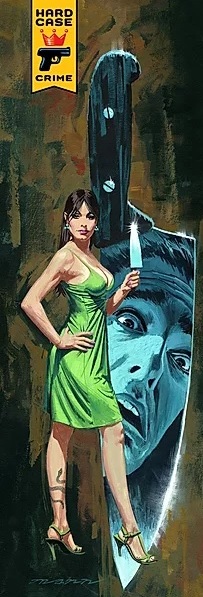 Today, links to two more reviews of Are Snakes Necessary?
Today, links to two more reviews of Are Snakes Necessary?
